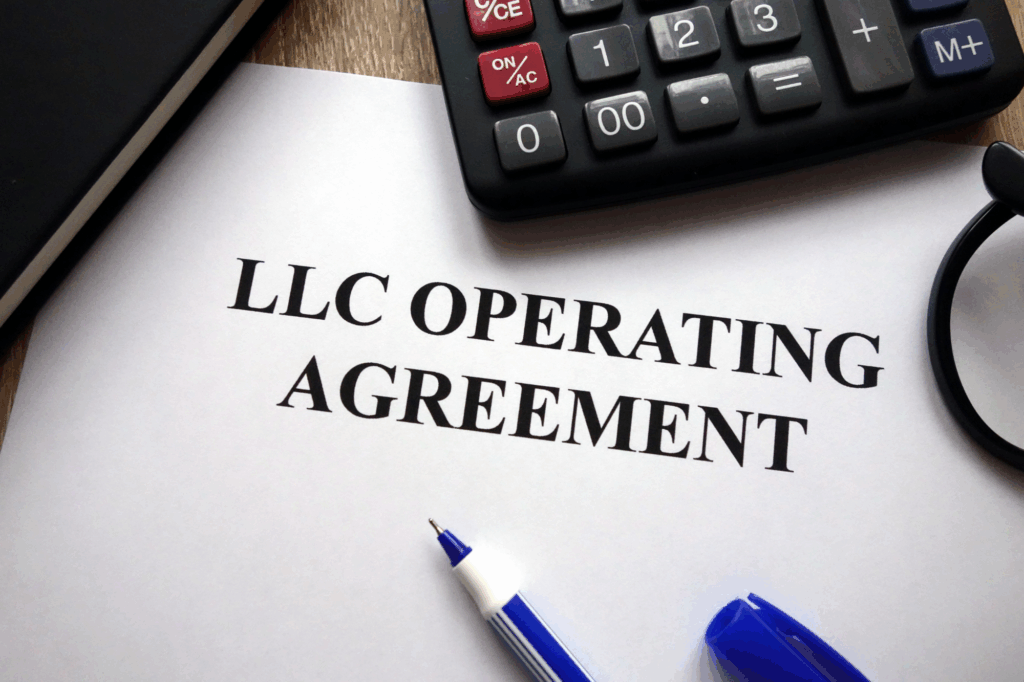The EIN Bottleneck: Why Speed Matters for Global Founders
The Employer Identification Number (EIN) is the single piece of data that traditional U.S. banks demand before they will let a foreign-owned company open an account. Unfortunately, the EIN issuance process for non-U.S. applicants can often take several weeks—and in some cases, even longer during peak periods. While you are waiting, you cannot plug a U.S. routing number into Amazon Seller Central, Stripe, PayPal or Shopify, which means your payouts sit in limbo. Your marketing team also stalls because Facebook Ads, Google Ads and TikTok require an active card issued by a U.S. bank to qualify for local ad credits. Payroll becomes equally problematic; even global payroll platforms such as Remote.com or Deel ask for a domestic account to pay American contractors by ACH. Every sunrise that passes without U.S. banking is another day a competitor captures market share, raises a seed round faster, and improves cash-flow optics with investors. In short, the speed at which you secure an EIN directly influences your launch velocity and revenue runway.
Clemta’s Pre-EIN Banking Workflow Explained
Clemta begins by forming your Delaware LLC or C-Corp in as little as one to three business days, using the state’s same-day electronic filing system. Once your company is formed, you’ll immediately receive your stamped formation documents, a digital operating agreement, and a pre-filled SS-4 EIN application in your dashboard. At the same time, Clemta submits your company details to our pre-EIN partner bank, Mercury, through our internal onboarding channel. Your application is processed and approved within 1-2 business days —allowing you to open a U.S. business bank account, fund it via international wire, and begin transacting immediately. Meanwhile, Clemta continues monitoring your EIN application in the background. As soon as the IRS assigns your number, we forward it directly to the bank, ensuring full account activation without delays or manual steps. By streamlining business formation, banking, and EIN tracking into a single flow, Clemta helps you start operating from day one.
Is Banking Before EIN Legal and Compliant?
Pre-EIN banking is perfectly legal when handled under the Know-Your-Customer (KYC) and Anti-Money-Laundering (AML) rules enforced by the Financial Crimes Enforcement Network, whose guidelines are available at fincen.gov. Fintech banks verify the personal identities, passports and addresses of the founders, which satisfies federal KYC requirements even though the EIN is still pending. These institutions file a temporary “awaiting EIN” notation with regulators, and client funds remain fully FDIC-insured up to $250,000 just as they would at a brick-and-mortar bank. From a tax standpoint, federal obligations begin only when the company has taxable U.S. activity, so you will file returns retroactively once the EIN is issued. Clemta’s bookkeeping module records every transaction from day one, creating an immutable audit trail that a CPA can reconcile with IRS forms later. Because no trading activity goes untracked, your accountant will not face gaps when preparing your 1120 or 5472. The end result is a banking arrangement that is fast, compliant, and indistinguishable from a traditional account after the EIN is attached.
Competitive Advantages for Ecommerce Sellers & SaaS Startups
Having immediate access to a U.S. routing and account number unlocks marketplace verification on Amazon, eBay, Walmart Marketplace and Etsy in minutes, rather than weeks. Sellers can cycle cash faster: once Amazon disburses funds in USD, you can pay Chinese or Mexican suppliers through low-cost ACH, avoiding the 3–5 % FX spreads that come with SWIFT. SaaS founders benefit as well; enterprise customers often insist on paying invoices to a U.S. bank, because it reassures their compliance departments that you operate under familiar financial oversight. Investors notice, too—during due diligence, a live U.S. account signals operational readiness and lowers perceived execution risk. By storing subscription revenue in dollars, you sidestep punishing currency swings that could erode MRR when converted back to your home currency. Finally, having a U.S. card on file for ad platforms and infrastructure tools often grants access to promotional credits and beta features reserved for American customers, giving you an edge in customer acquisition and product development.
Clemta vs. Traditional Providers: Feature-by-Feature
Speed is the headline metric: Clemta typically delivers a usable bank account in three to five days, while conventional providers that wait for an EIN average thirty to forty-five. The platform consolidates formation, banking, bookkeeping, federal and state tax filings, and even ITIN requests in a single dashboard, eliminating the need to juggle multiple vendors and invoices. Pricing is flat and transparent, in contrast to hidden “processing” or “courier” fees that legacy agents commonly tack on. Human compliance officers are reachable through WhatsApp, Slack or live chat, so you receive real-time guidance instead of slow ticket-queue responses. Automated reminders for Delaware franchise tax, 1099-K thresholds and multi-state sales-tax nexus appear inside the portal, protecting you from expensive penalties. Because Clemta’s workflow is digital-first, you can sign documents, upload KYC files and monitor EIN status from any device, anywhere in the world. All of these advantages compound, turning what was once a month-long administrative marathon into a streamlined multiday sprint.
Step-by-Step Checklist You Can Follow Today
- Decide whether an LLC (flexibility and pass-through taxation) or a C-Corp (preferred by venture capital) aligns with your funding and ownership goals.
- Choose a company name and confirm Delaware as your formation state—over 90 % of foreign-owned U.S. entities incorporate there because of the Court of Chancery’s predictable case law, detailed at courts.delaware.gov.
- Complete Clemta’s ten-minute KYC form, uploading a valid passport and recent proof of address; the portal accepts PDFs and smartphone photos.
- Review and e-sign your Articles of Organization or Certificate of Incorporation, then pay the state filing fee with any major credit card.
- Wait for the filing confirmation email, then log back in to see your live U.S. bank account details, including routing number, account number and debit-card provisioning.
- Begin processing payments immediately and store receipts in the built-in bookkeeping module, which syncs with QuickBooks and Xero for deeper analytics.
- Watch for a dashboard notification once your EIN arrives; the system auto-forwards it to the bank and updates your internal documents.
- Schedule a complimentary tax onboarding call with Clemta’s CPA team, covering federal income tax, state franchise tax, and potential sales-tax registration across nexus states as defined on the Streamlined Sales Tax site at streamlinedsalestax.org.
Real-World Success Stories
An Istanbul-based Amazon FBA seller incorporated on a Monday, connected a Mercury account by Wednesday, and received her first U.S. payout eight days later, saving roughly $2,300 in FX spreads during the first month alone. A Berlin SaaS startup raised a $500,000 seed round because investors could wire funds to a domestic account before SAFE documents were even countersigned, showcasing instant operational capability. In Bangalore, a dropshipping firm used ACH to pay U.S. wholesalers directly, eliminating the 10 % intermediary fees that had previously eaten into margins on every order. A Tel-Aviv fintech app secured an 814-number toll-free phone line and U.S. bank letterhead within a week, which helped pass a stringent vendor assessment with a Fortune 500 customer. Meanwhile, a Buenos Aires design agency leveraged its U.S. account to qualify for Stripe Atlas Partner perks, unlocking $20,000 in free cloud credits. Finally, a Lagos-based ed-tech platform tapped into sba.gov mentorship programs once it could demonstrate a legitimate U.S. banking relationship, accelerating its entry into American school districts. These diverse stories underscore one theme: faster banking equals faster growth, no matter your sector or location.
Frequently Asked Questions
Q1. Can I open the account if I don’t have a U.S. address?
Yes. Clemta provides a physical U.S. business address, which meets the requirements most banks have for corporate account verification. This address can be used for bank statements, IRS correspondence, and supplier invoices. It complies with KYC regulations outlined by U.S. authorities and is recognized nationwide, making it a valid solution even if you don’t reside in the U.S. If needed, you can later add a separate shipping or fulfillment address for product delivery. This setup is widely used by thousands of international founders and ensures that not having a personal U.S. residence is never a barrier to starting your business.
Q2. Are there extra fees for the banking service?
No. Pre-EIN banking is included at no additional cost in all of Clemta’s subscription plans: Essentials, Pro, and Premium. The fintech partner banks themselves charge zero monthly maintenance fees, zero minimum-balance fees and zero domestic wire fees. International incoming wires carry the standard $5-to-$10 bank charge, which is typically lower than SWIFT fees at traditional banks. Because Clemta negotiates partner agreements in bulk, you benefit from price points that are rarely available to solo founders. Furthermore, the platform absorbs the cost of sending your EIN to the bank, so you never receive a surprise invoice. Transparent, all-in pricing is a core pillar of Clemta’s customer charter.
Q3. Do I need an SSN?
Non-U.S. founders don’t need a Social Security Number to form a Delaware company, obtain an EIN, or open a pre-EIN bank account through Clemta—your passport and proof of address are sufficient. An SSN is only issued to U.S. citizens and permanent residents, so its absence won’t slow down your onboarding; if you ever need a personal U.S. tax ID later, Clemta can help you apply for an ITIN.
Conclusion
Opening a U.S. bank account before your EIN arrives is no longer wishful thinking—it is rapidly becoming the default for high-velocity global businesses. By combining formation, banking and compliance into a single digital stack, Clemta (https://app.clemta.com) eliminates the IRS waiting game, injects immediate cash flow, and leaves slower competitors scrambling. If you are ready to incorporate, bank and scale in days instead of months, create your Clemta account today.







